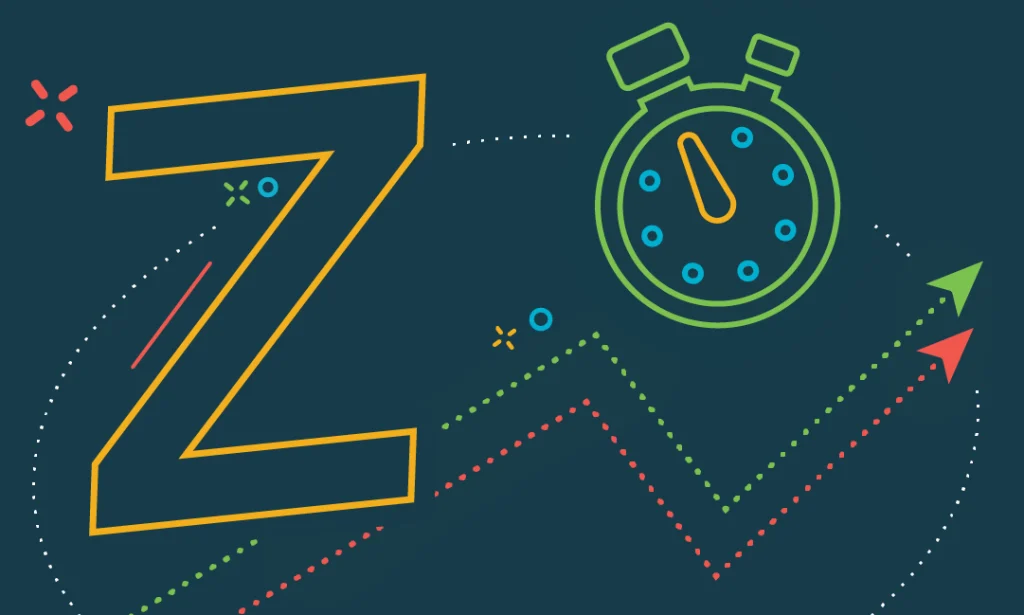The Skills Gen Z Needs to Succeed and How Colleges and Employers Can Support Their Development

As Gen Z begins to navigate their careers, many face challenges that prior generations didn’t encounter. Growing up as digital natives and entering a workforce shaped by remote and hybrid work environments, they often lack the in-person experience necessary to develop key soft skills. This gap is especially evident in college athletes transitioning into professional environments where team dynamics, emotional intelligence, and leadership are vital.
Gen Z athletes, who are accustomed to the physical and tactical aspects of their sport, now need to cultivate emotional intelligence (EQ) to thrive in the workplace. In addition to their athletic capabilities, the soft skills they acquire during college will play a major role in their success after graduation. Unfortunately, studies show that 82% of managers feel Gen Z employees need more training in these areas.
Why Soft Skills Matter for Gen Z Athletes
For student-athletes, soft skills like collaboration, communication, and emotional intelligence can be just as critical as physical performance. While skills in sports may come naturally through years of practice, skills in navigating office environments, understanding team dynamics outside of the field, and managing one’s emotional responses to workplace challenges are areas that need conscious development.
Gen Z athletes often face the unique challenge of adapting to a professional environment after years of being highly structured in a sports team context. These athletes must adjust from the world of clear roles and expectations on the field to environments where rules are often unspoken, and self-management becomes a crucial skill. The importance of emotional intelligence (EQ) cannot be overstated here; it’s what helps Gen Z professionals—especially athletes—navigate the challenges of ambiguity, internal politics, and communication.
Developing the Right Mindset for Career Growth
Gen Z athletes need to understand that career growth isn’t always visible. They may not get the promotion, title, or office immediately, but growth can often manifest in quieter, more internal ways. As they transition from athletes to professionals, they should focus on becoming more self-aware, building emotional intelligence, and learning to collaborate effectively with others. This might look like listening more in meetings, seeking mentorship, and understanding that leadership doesn’t always mean speaking the loudest.
The “growth mindset” is especially important here. Athletes, who are accustomed to pushing themselves physically and mentally, may find it easy to adapt to a professional environment once they embrace the idea of trying new things, taking risks, and learning from failures—traits that are essential in career development.
How the Career Accelerator Program Helps Gen Z
One way companies and colleges can support Gen Z athletes is by offering targeted training programs like the Career Accelerator. Designed to develop soft skills such as communication, collaboration, and decision-making, this program helps Gen Z athletes build the foundation they need for professional success.
The Career Accelerator program blends coaching, mentoring, and real-world scenarios to simulate workplace environments and help young professionals navigate the challenges they will face. By teaching them to understand themselves, their values, and how to communicate with different stakeholders, athletes can better prepare for the complexities of the workplace, where clear roles and expectations may not always be defined.
Incorporating Soft Skills into Athletic Development
As colleges and employers begin to recognize the importance of soft skills, it’s crucial to integrate these into athletic development programs. Just as athletes train their bodies for peak performance, they should also train their minds to handle the interpersonal and emotional challenges that come with their professional careers. This can be done through mentorship programs, career coaching, and on-the-job learning experiences that prioritize personal growth alongside professional skills.
The key takeaway for Gen Z athletes is that career development isn’t just about physical prowess or technical ability; it’s about emotional intelligence, collaboration, and adapting to new challenges. Colleges and employers that offer comprehensive support systems will be key in helping them transition successfully from the world of sports to the world of work.
By focusing on both professional and personal development, athletes can excel both on and off the field.

